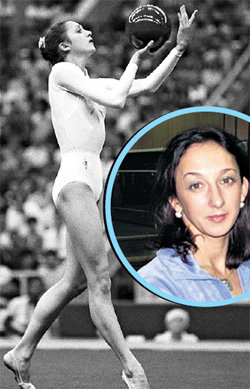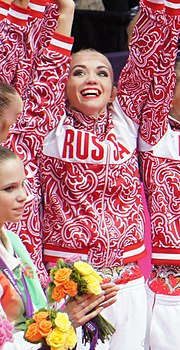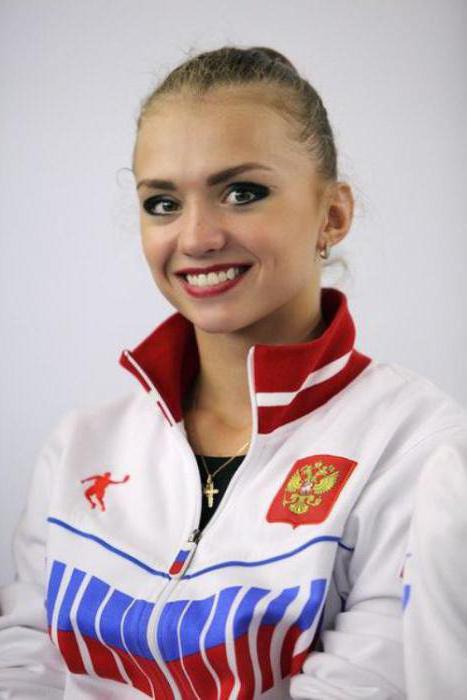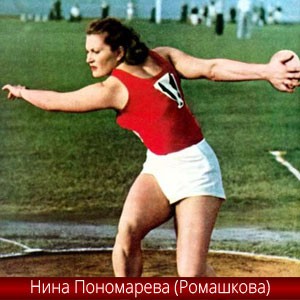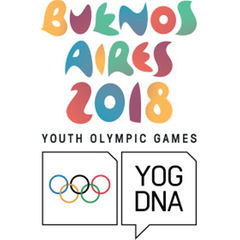Дзюдо Краматорск. Таов хасанби
Таов, Хасанби Урусбиевич - WikiVisually
1. Россия – Russia, also officially the Russian Federation, is a country in Eurasia. The European western part of the country is more populated and urbanised than the eastern. Russias capital Moscow is one of the largest cities in the world, other urban centers include Saint Petersburg, Novosibirsk, Yekaterinburg, Nizhny Novgorod. Extending across the entirety of Northern Asia and much of Eastern Europe, Russia spans eleven time zones and incorporates a range of environments. It shares maritime borders with Japan by the Sea of Okhotsk, the East Slavs emerged as a recognizable group in Europe between the 3rd and 8th centuries AD. Founded and ruled by a Varangian warrior elite and their descendants, in 988 it adopted Orthodox Christianity from the Byzantine Empire, beginning the synthesis of Byzantine and Slavic cultures that defined Russian culture for the next millennium. Rus ultimately disintegrated into a number of states, most of the Rus lands were overrun by the Mongol invasion. The Soviet Union played a role in the Allied victory in World War II. The Soviet era saw some of the most significant technological achievements of the 20th century, including the worlds first human-made satellite and the launching of the first humans in space. By the end of 1990, the Soviet Union had the second largest economy, largest standing military in the world. It is governed as a federal semi-presidential republic, the Russian economy ranks as the twelfth largest by nominal GDP and sixth largest by purchasing power parity in 2015. Russias extensive mineral and energy resources are the largest such reserves in the world, making it one of the producers of oil. The country is one of the five recognized nuclear weapons states and possesses the largest stockpile of weapons of mass destruction, Russia is a great power as well as a regional power and has been characterised as a potential superpower. The name Russia is derived from Rus, a state populated mostly by the East Slavs. However, this name became more prominent in the later history, and the country typically was called by its inhabitants Русская Земля. In order to distinguish this state from other states derived from it, it is denoted as Kievan Rus by modern historiography, an old Latin version of the name Rus was Ruthenia, mostly applied to the western and southern regions of Rus that were adjacent to Catholic Europe. The current name of the country, Россия, comes from the Byzantine Greek designation of the Kievan Rus, the standard way to refer to citizens of Russia is Russians in English and rossiyane in Russian. There are two Russian words which are translated into English as Russians
2. Дзюдо – Judo was created as a physical, mental and moral pedagogy in Japan, in 1882, by Jigoro Kano. It is generally categorized as a martial art which later evolved into a combat. Strikes and thrusts by hands and feet as well as defenses are a part of judo. A judo practitioner is called a judoka, the philosophy and subsequent pedagogy developed for judo became the model for other modern Japanese martial arts that developed from koryū. The early history of judo is inseparable from its founder, Japanese polymath and educator Kanō Jigorō, Kano was born into a relatively affluent family. His father, Jirosaku, was the son of the head priest of the Shinto Hiyoshi shrine in Shiga Prefecture. He married Sadako Kano, daughter of the owner of Kiku-Masamune sake brewing company and was adopted by the family and he ultimately became an official in the Shogunal government. Jigoro Kano had an academic upbringing and, from the age of seven, he studied English, shodō, when he was fourteen, Kano began boarding at an English-medium school, Ikuei-Gijuku in Shiba, Tokyo. The culture of bullying endemic at this school was the catalyst that caused Kano to seek out a Jūjutsu dōjō at which to train, early attempts to find a jujutsu teacher who was willing to take him on met with little success. With the fall of the Tokugawa shogunate in the Meiji Restoration of 1868, many of those who had once taught the art had been forced out of teaching or become so disillusioned with it that they had simply given up. Nakai Umenari, an acquaintance of Kanōs father and a soldier, agreed to show him kata. The caretaker of Jirosakus second house, Katagiri Ryuji, also knew jujutsu, Another frequent visitor, Imai Genshiro of Kyūshin-ryū school of jujutsu, also refused. Several years passed before he found a willing teacher. In 1877, as a student at the Tokyo-Kaisei school, Kano learned that many jujutsu teachers had been forced to pursue alternative careers, frequently opening Seikotsu-in. After inquiring at a number of these, Kano was referred to Fukuda Hachinosuke, a teacher of the Tenjin Shinyō-ryū of jujutsu, Fukuda is said to have emphasized technique over formal exercise, sowing the seeds of Kanos emphasis on randori in judo. On Fukudas death in 1880, Kano, who had become his keenest and most able student in both randori and kata, was given the densho of the Fukuda dojo, Kano chose to continue his studies at another Tenjin Shinyō-ryū school, that of Iso Masatomo. Iso placed more emphasis on the practice of kata, and entrusted randori instruction to assistants, Iso died in June 1881 and Kano went on to study at the dojo of Iikubo Tsunetoshi of Kitō-ryū. Like Fukuda, Iikubo placed much emphasis on randori, with Kitō-ryū having a focus on nage-waza
3. Нальчик – It covers an area of 131 square kilometers. The territory of modern-day Nalchik was formerly known as Slabada and it was inhabited by native Kabardians, Balkars, Chechens, Adeki, and Cherkese until around 1743, groups occasionally clashed over and dispute their claims to the land. With the founding of the city of Nalchik, the disputes among the native groups calmed, the word Nalchik literally means small horseshoe in Kabardian and Karachay-Balkar. It is a diminutive of nal, a common Middle Eastern word for horseshoe, possibly from the ancient Scythian, nalak. The city of Nalchik was named this way because of how it is shaped as surrounded by the mountains of the land, during World War II, Nalchik was occupied by Nazi Germany and Romania between October 28,1942, and January 3,1943. The city was damaged during the conflict. Nalchiks Jewish population, mostly Mountain Jews, suffered brutal beatings, however, the Jewish People of Nalchik were able to survive the invasion because they were able to, somewhat, blend in with their neighbors. Nalchik was chosen the second cleanest city of Russia in 2003, on October 13,2005, Nalchik was attacked by a large group of Yarmuk Jamaat militants led by Shamil Basayev and Anzor Astemirov. Buildings associated with the Russian security forces were targeted, killing at least 14 civilians, thirty-five policemen were killed in the fighting and eighty-nine militants, including prominent leader Ilias Gorchkhanov, were killed while another fifty-nine were arrested. As a municipal division, the city of republic significance of Nalchik is incorporated as Nalchik Urban Okrug and it also serves as an industrial center of the republic. com, Nalchik has a humid continental climate with hot summers and no dry season. The warm season lasts from late May to mid-September and the season from December to March. Most forms of precipitation are light rain and thunderstorms, as well as, light snow, wind speeds are typically calm to a light breeze through the year. PFC Spartak Nalchik is an football club based in Nalchik. The 2008 World Womens Chess Championship has also held in Nalchik on August 28–September 18,2008. Закон №12-РЗ от27 февраля2005 г, «Об административно-территориальном устройстве Кабардино-Балкарской Республики», в ред. Закона №20-РЗ от23 апреля2014 г, «О внесении изменений в отдельные республиканские Законы». Вступил в силу на следующий день после опубликования, Опубликован, Кабардино-Балкарская правда, б/н,1 марта2005 г. Закон №13-РЗ от27 февраля2005 г, «Об статусе и границах муниципальных образований в Кабардино-Балкарской Республики», в ред
4. Союз Советских Социалистических Республик – The Soviet Union, officially the Union of Soviet Socialist Republics was a socialist state in Eurasia that existed from 1922 to 1991. It was nominally a union of national republics, but its government. The Soviet Union had its roots in the October Revolution of 1917 and this established the Russian Socialist Federative Soviet Republic and started the Russian Civil War between the revolutionary Reds and the counter-revolutionary Whites. In 1922, the communists were victorious, forming the Soviet Union with the unification of the Russian, Transcaucasian, Ukrainian, following Lenins death in 1924, a collective leadership and a brief power struggle, Joseph Stalin came to power in the mid-1920s. Stalin suppressed all opposition to his rule, committed the state ideology to Marxism–Leninism. As a result, the country underwent a period of rapid industrialization and collectivization which laid the foundation for its victory in World War II and postwar dominance of Eastern Europe. Shortly before World War II, Stalin signed the Molotov–Ribbentrop Pact agreeing to non-aggression with Nazi Germany, in June 1941, the Germans invaded the Soviet Union, opening the largest and bloodiest theater of war in history. Soviet war casualties accounted for the highest proportion of the conflict in the effort of acquiring the upper hand over Axis forces at battles such as Stalingrad. Soviet forces eventually captured Berlin in 1945, the territory overtaken by the Red Army became satellite states of the Eastern Bloc. The Cold War emerged by 1947 as the Soviet bloc confronted the Western states that united in the North Atlantic Treaty Organization in 1949. Following Stalins death in 1953, a period of political and economic liberalization, known as de-Stalinization and Khrushchevs Thaw, the country developed rapidly, as millions of peasants were moved into industrialized cities. The USSR took a lead in the Space Race with Sputnik 1, the first ever satellite, and Vostok 1. In the 1970s, there was a brief détente of relations with the United States, the war drained economic resources and was matched by an escalation of American military aid to Mujahideen fighters. In the mid-1980s, the last Soviet leader, Mikhail Gorbachev, sought to reform and liberalize the economy through his policies of glasnost. The goal was to preserve the Communist Party while reversing the economic stagnation, the Cold War ended during his tenure, and in 1989 Soviet satellite countries in Eastern Europe overthrew their respective communist regimes. This led to the rise of strong nationalist and separatist movements inside the USSR as well, in August 1991, a coup détat was attempted by Communist Party hardliners. It failed, with Russian President Boris Yeltsin playing a role in facing down the coup. On 25 December 1991, Gorbachev resigned and the twelve constituent republics emerged from the dissolution of the Soviet Union as independent post-Soviet states
wikivisually.com
Хасанби Таов.: "Российские дзюдоисты подходят к чемпионату мира в отличной форме"
→ Хасанби Таов.: "Российские дзюдоисты подходят к чемпионату мира в отличной форме"
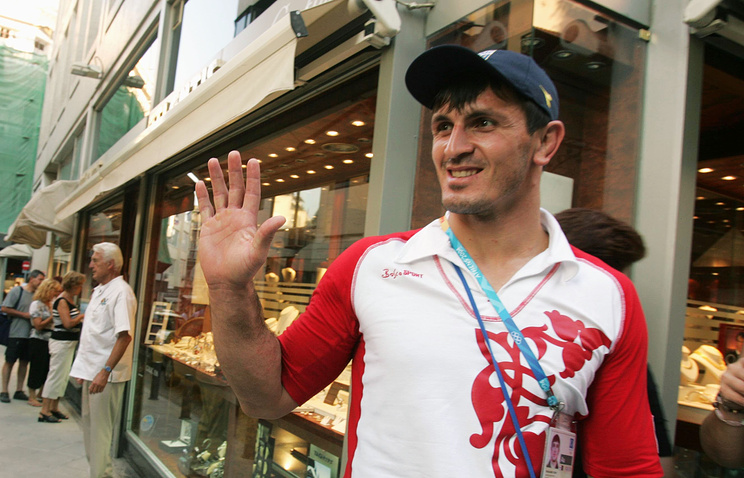
Российские дзюдоисты провели продуктивный тренировочный сбор в Адлере и подходят к сентябрьскому чемпионату мира в Будапеште в отличной форме. Об этом ТАСС рассказал главный тренер мужской сборной России Хасанби Таов.
Чемпионы ОИ-2016 Мудранов и Халмурзаев выступят на чемпионате мира по дзюдо в Будапеште
На чемпионате мира в составе команды выступят два олимпийских чемпиона Игр в Рио-де-Жанейро — Беслан Мудранов и Хасан Халмурзаев, а также Михаил Пуляев (66 кг), Денис Ярцев и Муса Могушков (73 кг), Алан Хубецов (81 кг), брат- близнец олимпийского чемпиона Хусен Халмурзаев (90 кг), Кирилл Денисов и Казбек Занкишиев (100).
«Команда провела продуктивную работу на сборе в Адлере, где мы уже определились с составом на чемпионат мира, — рассказал Таов. — Теперь проведем сбор в словенской Изоле, а заключительный этап подготовки пройдет в Казани, откуда мы 25 августа вылетаем в Будапешт».
Как сообщил Таов, тренерский штаб принял решение на этот раз не выставлять спортсмена в тяжелом весе, но лидер команды Ренат Саидов продолжает работу со сборной. «В тяжелом весе на этот раз мы не будем выступать. Но Ренат продолжает тренировки, работает, отправится с нами на предстоящие сборы», — сообщил он.
Состав сборной России по дзюдо на ЧМ будет назван в августе на сборе в Казани
В рамках чемпионата мира впервые пройдет командный турнир в формате, в котором он дебютирует на Олимпиаде-2020 в Токио. Страны будут представлены смешанными сборными по тридзюдоистки и три дзюдоиста в весовых категориях 57, 70 и свыше 70 кг и 73, 90 и свыше 90 кг соответственно.
На последнем чемпионате мира, который проходил в 2015 году в Астане, россияне завоевали две серебряные награды, их обладателями стали Михаил Пуляев и Кирилл Денисов,выступавший тогда в весе 90 кг, россиянки выиграли бронзу в командном турнире.
Чемпионат мира 2017 года пройдет с 28 августа по 3 сентября, призовой фонд турнира составит около одного миллиона долларов.
judokramatorsk.info
Хасанби Таов: «Победа на ЧЕ по дзюдо никому не гарантирует участие в ЧМ-2017″
→ Хасанби Таов: "Победа на ЧЕ по дзюдо никому не гарантирует участие в ЧМ-2017"
Главный тренер мужской сборной России по дзюдо бронзовый призер Олимпийских игр 2004 года в Афинах Хасанби Таов возглавил команду в октябре прошлого года, и чемпионат Европы в Варшаве, по сути, стал первой серьезной проверкой готовности коллектива к решению серьезных задач.
Уроженец Нальчика не склонен много говорить, специалист предпочитает дело слову. Турнир в Польше стал успешным для российских атлетов: на счету команды две золотые медали, одна серебряная награда и четыре бронзовых в индивидуальных соревнованиях и серебро в командном турнире.
Таов в интервью специальному корреспонденту агентства «Р-Спорт» Олегу Богатову был привычно немногословен, подводя итоги турнира и рассказывая о перспективах участия отдельных титулованных спортсменов в чемпионате мира, который в конце августа стартует в Будапеште.
- Хасанби, в преддверии чемпионата Европы вы говорили нашему агентству, что две золотые медали посчитаете хорошим результатом. Так и получилось. Вы довольны тем, как показали себя спортсмены команды в Польше?
— Наши ребята на чемпионате Европы проявили себя хорошо — вы же сами видели, что все спортсмены отборолись на достойном уровне. И из девяти выступавших в личных соревнованиях дзюдоистов семеро завоевали медали различного достоинства. Это очень хороший результат. А два наших спортсмена, которые проиграли и не сумели пробиться на пьедестал, тоже реально могли выиграть медали.
Но это же спорт, не всегда все получается. Думаю, что наши спортсмены все внимательно проанализируют и будут на тренировках делать все возможное, чтобы в будущем добиваться хороших результатов.
- Победы Роберта Мшвидобадзе (в весовой категории до 60 килограммов) и Алана Хубецова (в весе до 81 кг) для вас ожидаемы? Или в большей степени неожиданны — может быть, ребята в чем-то прыгнули выше головы?
— Я всегда говорю спортсменам — заложенная на тренировках работа, весь проделанный перед соревнованиями труд даром не пропадает. Каждый из ребят по максимуму работал перед чемпионатом Европы, и все мы, тренеры, верили в них. Верили в то, что каждый из них выступит на очень неплохом уровне. И Роберт, и Алан в Польше оправдали наши надежды.
- Второе место в командном турнире (в финальной встрече россияне уступили оппонентам из Грузии со счетом 2-3) — это на сегодняшний день наш высший уровень? Или наша сборная была готова на большее, но не хватило каких-то нюансов?
— Конечно же, все мы хотели выиграть командный турнир. Но так получилось, что в финале проиграли сильным соперникам с минимальным преимуществом. Надо сказать, что после личных соревнований у некоторых ребят были микротравмы. И я не стал рисковать здоровьем ребят и в финале не поставил на схватку, в частности, того же (бронзового призера соревнований в весовой категории до 90 кг) Хусейна Халмурзаева.
- Из тех ребят, которые выступали на чемпионате Европы в Варшаве, сколько примерно спортсменов может пробиться в команду, которая будет бороться на чемпионате мира? Не в плане фамилий — понимаю, что вы этого не скажете, а в количественном отношении?
— Я не готов сегодня вам ответить, потому что у нас в команде есть хороший резерв в различных весовых категориях.
— К тому же и первые номера сборной России в некоторых весах не выступали в Польше?
— Да, например, чемпионы Олимпийских игр в Рио-де-Жанейро Беслан Мудранов (в весовой категории до 60 кг) и Хасан Халмурзаев (в весе до 81 кг), наш титулованный спортсмен (в категории до 66 кг) Михаил Пуляев. Поэтому перед выбором состава на чемпионат мира нашему тренерскому штабу будет над чем подумать и все тщательно взвесить при окончательном выборе.
- Когда вы планируете объявить состав команды на чемпионат мира в Венгрии?
— Обычно в нашей команде такие вопросы решаются примерно за три недели до старта. Вот тогда все окончательно и будет ясно, кто именно выступит в Будапеште.
- По всей видимости, это произойдет в начале августа?
— Да, примерно так и будет. На чемпионат мира будут отбираться все наши сильнейшие спортсмены, но в команду войдут именно те дзюдоисты, которые будут готовы в лучшей форме непосредственно перед турниром.У нас в сборной России нет такого, что обязательно поедут те, кто выиграл чемпионат Европы или какие-то другие крупные соревнования — Большой шлем или Гран-при. Кто лучше готов и кто себя лучше чувствует, тот и выступит на чемпионате мира.
- А есть ли в данный момент первые-вторые номера сборной России, которые, может быть, недавно получили серьезную травму и уже точно пропустят мировое первенство?
— Нет, сейчас таких серьезных повреждений нет ни у кого из наших известных спортсменов — все, как говорится, живы и здоровы. Знаете, при такой сильной поддержке, которую нам оказывает Федерация дзюдо России, мы должны всегда быть в тонусе и выступать хорошо. Такая помощь дает нам хороший стартовый толчок перед крупными соревнованиями. И сейчас я хочу поблагодарить всех руководителей российского дзюдо и наших болельщиков.
Мы благодарны также всем нашим спарринг-партнерам по команде, достигнутый нами результат — это не только заслуга спортсменов и тренеров. Это следствие нашей серьезной подготовки и нашей большой силы. Спасибо всем, кто нам помогал, за хорошую поддержку.
- Что скажете о дальнейших перспективах чемпионов Олимпийских игр 2012 года Мансура Исаева (в весовой категории до 73кг) и Тагира Хайбулаева (в весе до 100 кг)? Вопрос по ним пока открыт?
— Тагир Хайбулаев сейчас потихонечку тренируется, а Мансур Исаев в настоящее время восстанавливается после операции на колене, которую ему сделали недавно.
- Мансур может успеть подготовиться к чемпионату мира?
— Сейчас сложно об этом говорить. Мы будем оценивать ситуацию чуть позже. Посмотрим, как будет проходить процесс восстановления.
- Что можно сказать о состоянии бронзового призера Олимпийских игр в Лондоне в весовой категории до 81 кг Ивана Нифонтова, который давно не принимал участие в соревнованиях?
— Иван сейчас также восстанавливается после травмы локтя. В ситуации с ним пока тоже сказать что-то определенное нельзя. Все покажет время.
judokramatorsk.info
